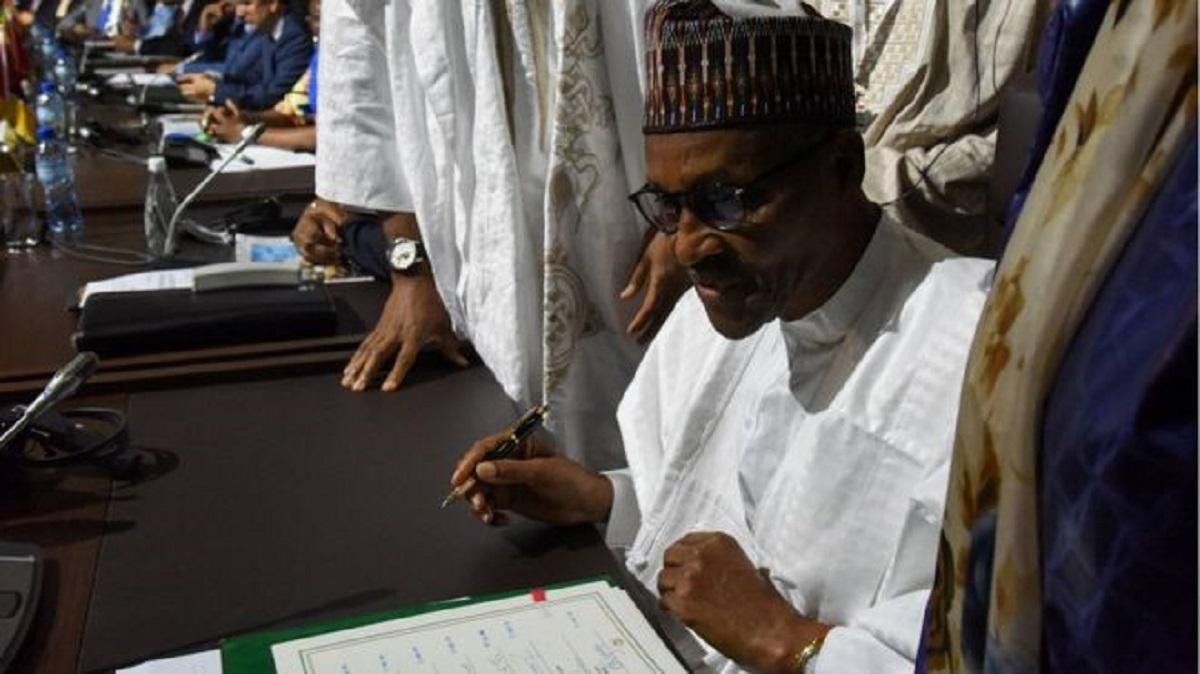Nigeria, Africa’s largest economy, signed the Free Trade Agreement to increase trade between African countries.
Eritrea is the only African country that has not signed the agreement. For the moment, it is on the sidelines of the trade bloc formed through this agreement signed by the President of Nigeria, Muhammadu Buhari, at the African Union (AU) summit, which is being held this weekend in Niamey, the capital city of Niger.
The first step in the implementation of the Free Trade Agreement will be to reduce tariffs on goods from AU countries. But no timetable has yet been set for that. Today, African countries trade only about 16% of their goods and services among them, compared to 65% with European countries, according to AFP.
The African Union estimates that the implementation of its free trade agreement will lead to a 60% increase in intra-African trade by 2022. She also believes that ZLECA will be the largest free trade area in the world.
Why is Nigeria’s membership important?
Last year, the continental free trade project stumbled on an obstacle when Nigeria withdrew from the negotiations. Nigeria, the most populous country in Africa, is Africa’s largest economy and has long been a regional powerhouse. When she withdrew from the process, some observers wondered whether the African trade agreement could come into being.
In withdrawing from the negotiations, President Muhammadu Buhari said he needed more consultation with economic actors in his country before joining. Since then, the government agency responsible for trade negotiations in Nigeria has reported consulting 27 organizations in the country, including labor unions.
Nigeria has a lot to gain from having increased access to its goods and services to the growing African market, according to BBC journalist. Many of the economic actors consulted fear that increased regional integration will lead to unfair competition for the jobs and goods they produce.
With Nigeria joining, the dream of increasing intra-African trade, which is currently lagging behind the continent’s volume of trade with Europe, seems more feasible than ever.
Now that the free trade area offers access to the huge Nigerian market, Africa is in a much better position to negotiate with regional bodies in other parts of the world.
This East African country did not participate in the negotiations because of its conflict with Ethiopia, according to AU Commissioner for Trade and Industry Albert Muchanga. As relations between the two countries have improved over the past year, Eritrea has asked the AU to join the process. “So, with time, Eritrea takes the bandwagon,” Mr. Muchanga hopes.
Why free trade agreement
Free trade agreements aim to reduce tariffs between member countries. Tariffs are taxes levied on goods entering a country for various reasons, sometimes to protect a product. The free trade agreement has the advantage of removing all border taxes or trade barriers on goods. It also ensures that there is no longer a limit to the amount of trade that the parties to the agreement – the signatory countries – can trade with each other. The free trade agreement makes trade between countries as liberal as possible and promotes competition.
